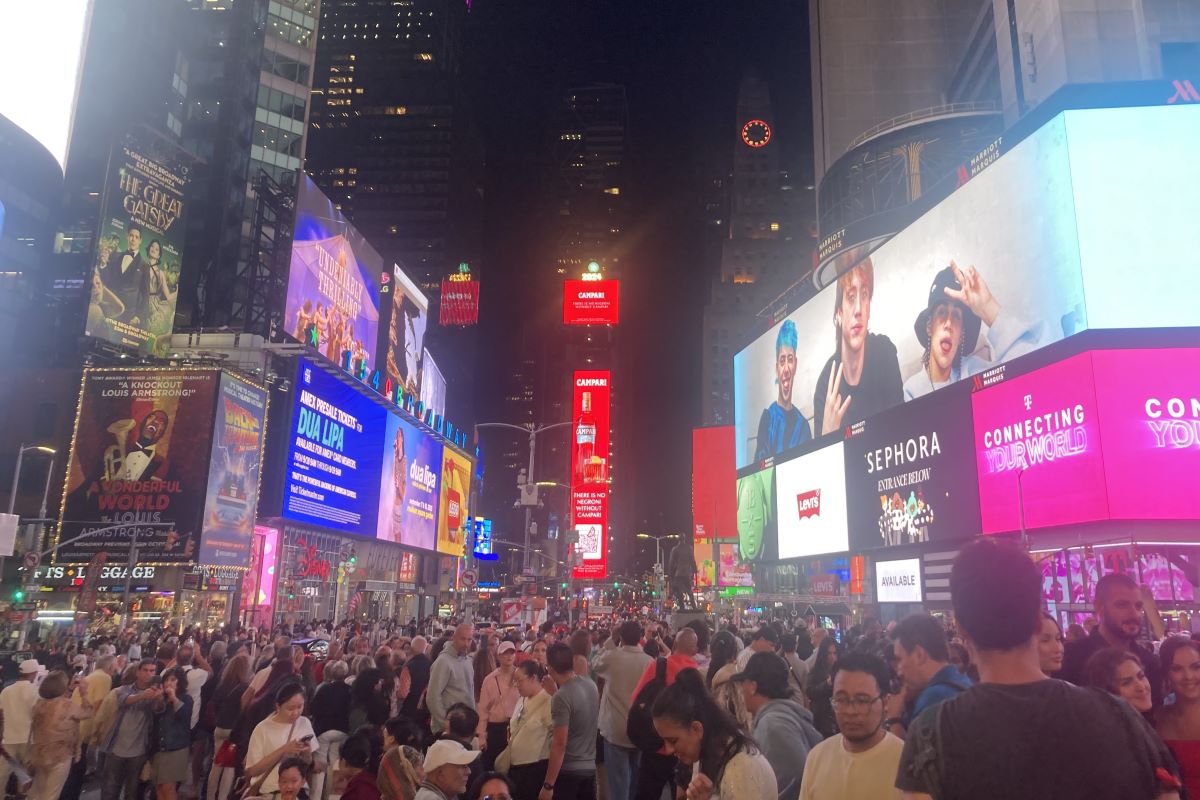What’s Worrying the Business Traveler

Skift Take
Skift launched the latest edition of our magazine, Travel in an Age of Permanxiety, at Skift Global Forum in New York City in September. This article is part of our look into the current state of the traveler mindset through the lens of the pervasive state of anxiety felt worldwide.
Download the full version of Skift’s Travel in an Age of Permanxiety magazine here.
Business travelers go where they’re told, regardless of the state of the world and with limited say in where they stay, how they get there, or what they do with their time.
As security becomes less certain even in regions that once seemed sheltered from violence, road warriors report that they are concerned about their safety on the road — even as they continue to travel. The travel ban and laptop ban earlier this year just added to the feeling of permanxiety for business travelers. Employers, who have an obligation to prioritize the safety of their travelers, turn to risk and security consulting firms like iJet and International SOS, and increasingly are creating their own tools to track, notify, and more easily communicate with business travelers on the road.
Workers are divided when it comes to traveling for business. Younger employees love to travel for work as it represents an opportunity to travel the world while developing their careers. Older employees, though, may want to spend more time at home with their families.
Regardless of who you are, travel for work is often stressful. In addition to dealing with the annoyances and discomfort that come with travel, you also have to do your job, often working longer hours than you normally would at the office. Not everyone is well-equipped to deal with these challenges, and there is often enormous pressure to perform.
Explosive Growth
Business travel is growing across the world, a result of a strong global economy. The Global Business Travel Association (GBTA) found that $1.2 trillion was spent worldwide on business travel in 2015, with China, the U.S., and Germany representing the three highest spending countries.
In an age of anxiety and uncertainty, businesses now have to keep close tabs on employees when traveling. This can manifest itself in many ways, from limitations on neighborhoods or properties someone can stay at, to more advanced tools that allow companies to track a traveler’s location using their mobile device.
It’s important to remember that not every business traveler is a grizzled road warrior crossing the globe every few days. Most travel a couple times a year to destinations not far from home, according to GBTA research.
The concept of duty of care, which refers to the legal need for businesses to care for travelers they dispatch on trips, has become a focus for organizations. (In the U.S., there is actually no law stating companies have to care for workers who are traveling; most provide this service for liability purposes, instead.)
“Unfortunately, security concerns are on the rise globally,” said Michael Gulmann, Egencia’s chief product officer. “Our customers need to be able to account for their employees’ safety and address issues and risks immediately. In the past, when employees booked through multiple booking tools, travel managers had to query multiple systems to understand which employees were potentially affected by an incident….Combined with the rise in smartphones and apps, travel managers [now] also have the benefit of being able to alert employees to risks even before they board their planes to communicate an action plan well in advance.”
Terror Fears
Travel management companies and risk management providers offer the ability for travelers to check in as safe during a crisis, with functionality similar to Facebook’s Safety Check feature. There’s also the capability for travel managers to view employee locations on a map in real time, giving further granularity when something goes wrong.
While terrorism may be the most alarming concern on an everyday basis, business travelers also suffer many other less discussed problems on the road, ranging from medical issues to travel disruptions and mental health breakdowns. These sorts of problems that regularly afflict business travelers are not much discussed, but can completely derail a trip and affect a company’s bottom line if not handled effectively.
It’s no wonder that a business trip can sometimes place workers in an unusual, and disconcerting, situation. Companies like International SOS and iJet provide risk management information and tools for travel management companies to help them better predict and respond to the uncertainty in the world. Dealing with the unpredictable nature of the world, however, remains a constant challenge.
“The terrorism angle is the big issue because it’s in the news; even though it ends up being a lower risk event, the impact is so high,” said Matthew Bradley, regional security director for the Americas region at International SOS. “[For employers] It’s also the internal piece of how did you respond when it happened. In Western Europe, you can’t really go back to a time where there was a two-year period when every month there was a major event in a major city. The surprising part is there haven’t been more in the U.S.”
There’s also the wider issue of security precautions on global airlines disrupting business travelers. The recent laptop ban on direct flights from the Middle East and Africa to the U.S. led many to rebook their flights through other airports, due to the risk of damage to checked laptops and the chance of company data being compromised. While the ban imposed earlier this year has been relaxed, it’s not hard to imagine future restrictions on traveling with large electronic devices. Coupled with travel and immigration restrictions imposed by the U.S. government, a new layer of complexity has been added to the business travel experience.
There’s only so much that companies can do to relieve the anxiety of their traveling workers while mitigating the risks they face. Travelers themselves can remain vigilant and educated about their surroundings, but inevitably things can go wrong regardless.
Download Travel in an Age of Permanxiety magazine here





